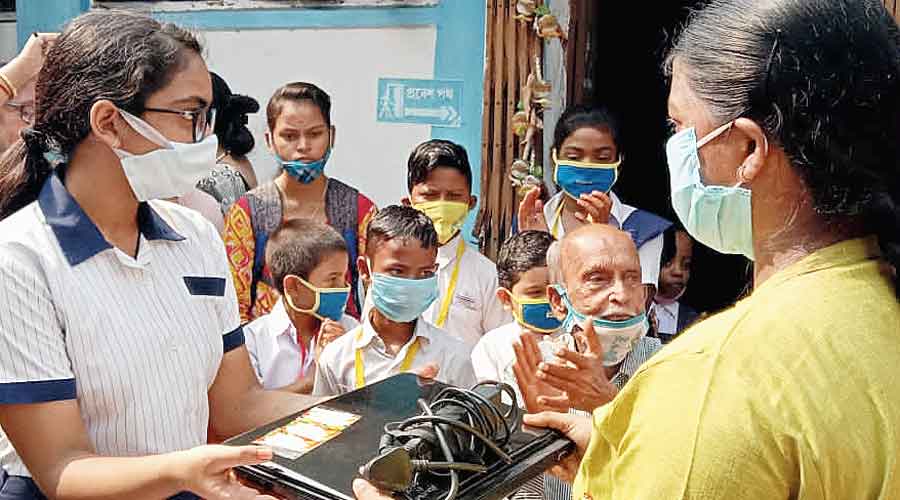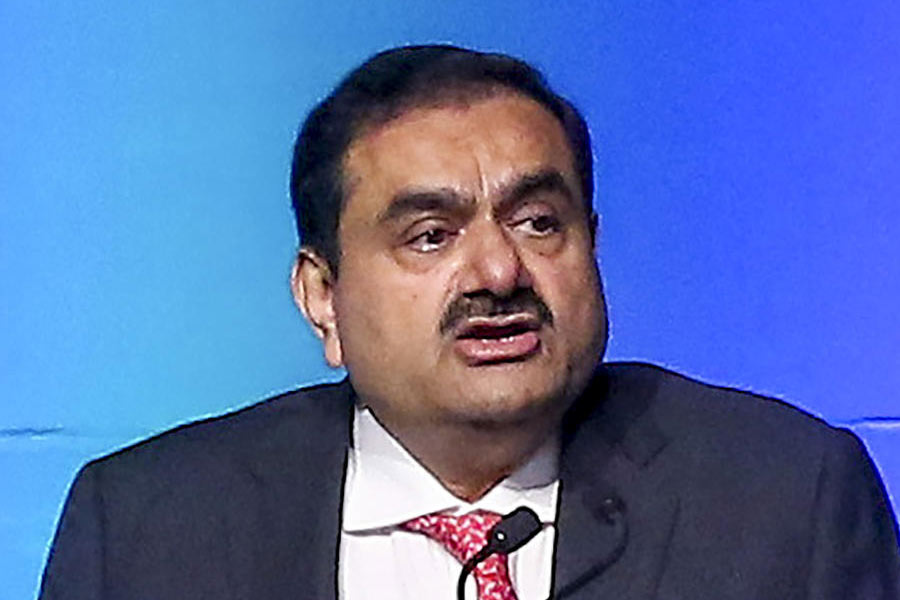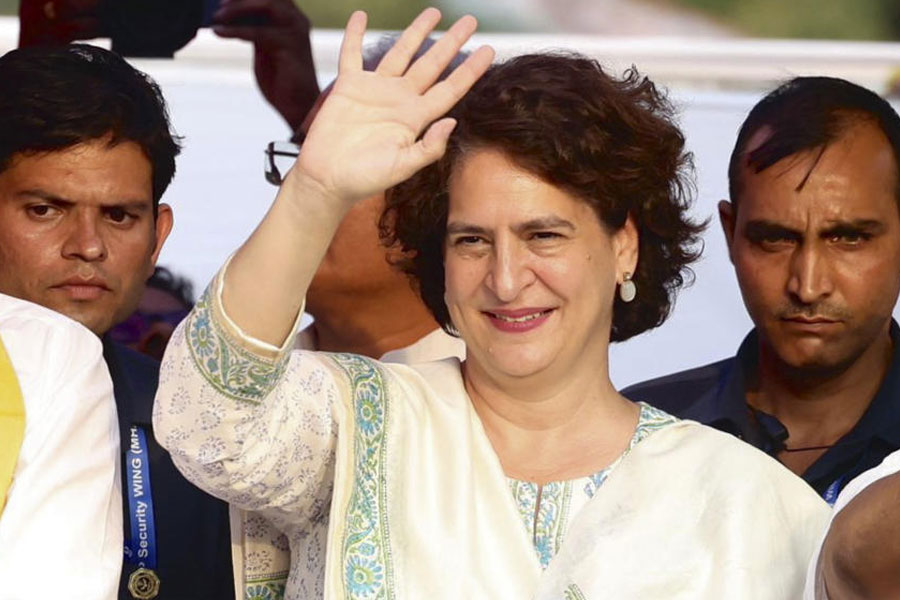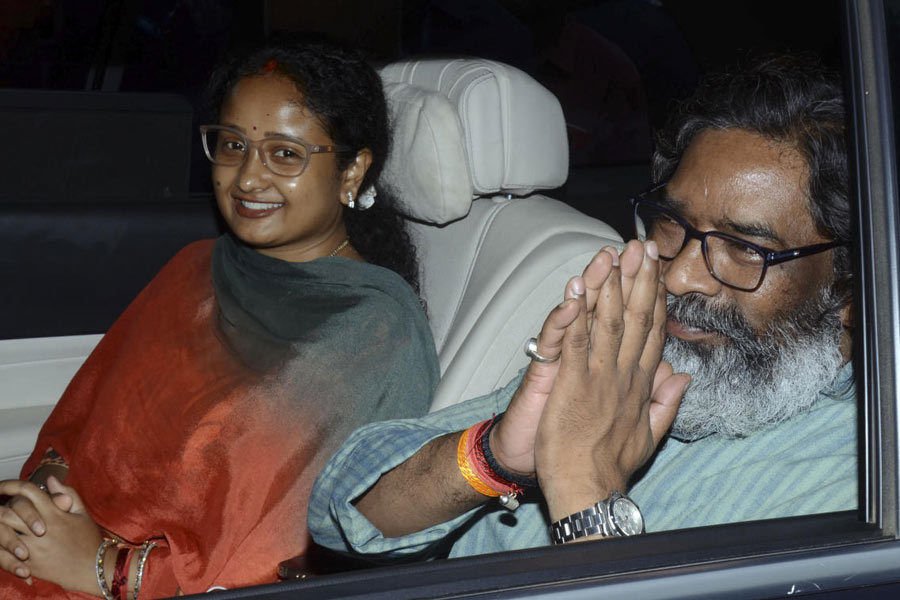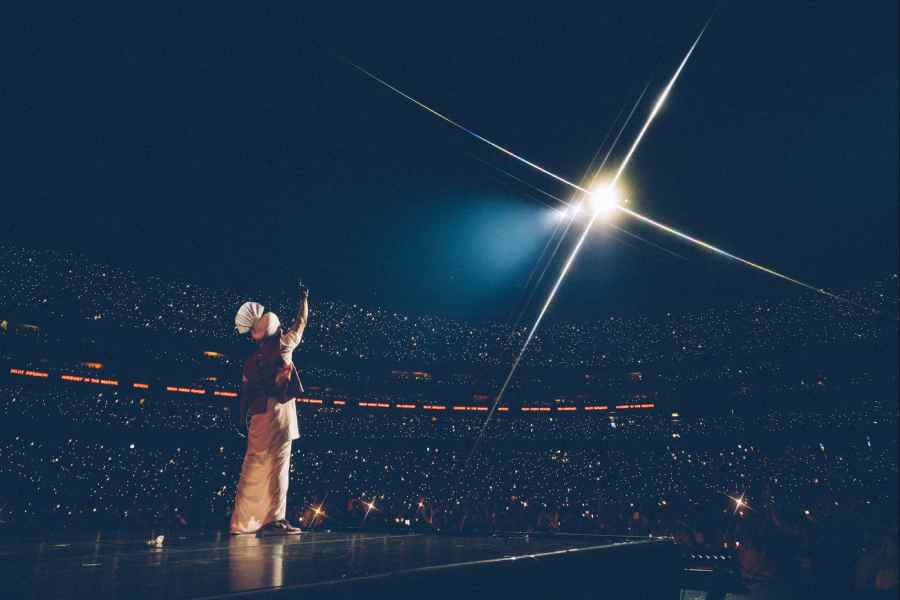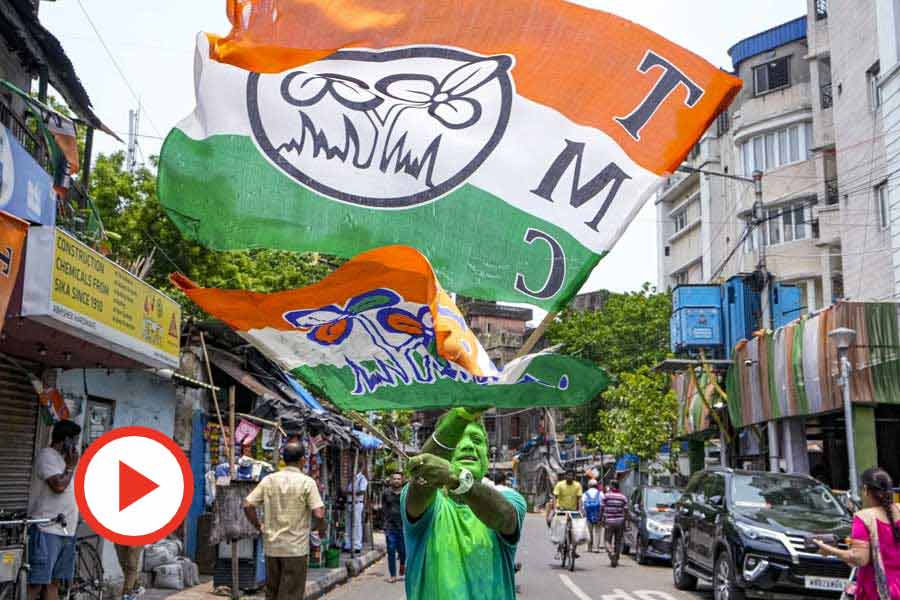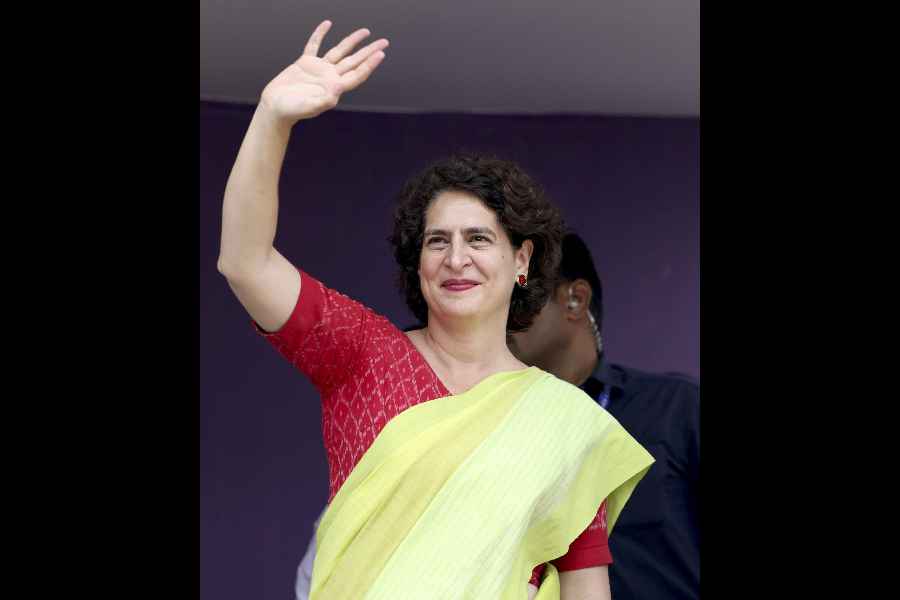Sushila Birla Girls’ School
Students of Sushila Birla Girls’ School overcame the fear of pandemic as they recently took part in Daan Utsav like every year. Teachers, students and parents joined hands to serve the underprivileged and thus share the joy of giving just before the festive season.
The drive was divided into three phases. In the first phase, a competition was conducted to generate awareness among everyone associated with the school. The second phase consisted of the donation of devices. The school could collect 92 mobile phones, nine tablets, the same number of desktops, 12 laptops, one television set and innumerable accessories, including earphones, headphones, keyboards and mouses. In the last phase, these devices were donated to four organisations — Arogya Sandhan; Kid’s Centre, Gariahat; RISE, Krishnanagar; and Upendra Vidyamandir, Sovabazar — that cater to the educational needs of the underprivileged children. “This year, Daan Utsav was celebrated in a special way. It was all about destroying the digital divide and enabling little children to continue their academic journey uninterrupted. This joyful act of giving is a powerful stimulus as it is empowering in the true sense of the term,” said principal
Mahadevi Birla World Academy
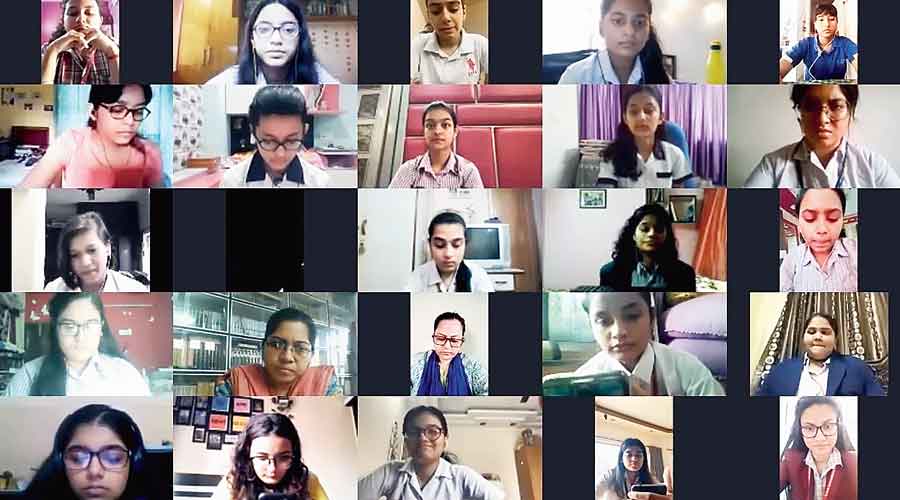
A two-day fest, Shabdd-20, organised by Mahadevi Birla World Academy recently saw students from Calcutta and beyond connecting virtually over debates, fashion quiz, slam poetry, shadow puppetry and other events. Eleven schools, including one from Delhi, took part in a range of live and recorded events that celebrated diversity. The live events included Manthan, a three-round debate, and Metis from Milan, a quiz on fashion. The recorded ones also included a Bengali cookery competition. The guest of honour was Jayashree Mohta, the mentor of the school.
The high point was Manthan, the debate. Birla Vidya Niketan, the school from Delhi, and The Heritage School went to the finals of Manthan. The motion for the final was “Satyamev Jayate sounds hollow in contemporary India”. The Delhi school spoke for the motion and won the debate. Entrepreneur Swati Gautam of Calcutta Debating Circle was the moderator.
The host school emerged the overall winner in the fest. “This is a very special event. Acceptance is recovery. This fest exhibits the resilience and spirit of the students as they rise above the odds and a pandemic. They have shown how one must always try to rise and never yield,” said principal Anjana Saha.
Pratt Memorial School
Pratt Memorial School recently celebrated their Founder’s Day with a church service and an online programme. The chief guest was Reverend Paritosh Canning, the bishop of the Church of North India’s Calcutta Diocese. Like every year, the service was held at St James’ Church in the presence of a handful of teachers. “Students recorded songs from their homes and the Founder’s Day programme was uploaded on YouTube for the rest of the students,” said principal Carolyn Lionel.
Bichitra Pathshala
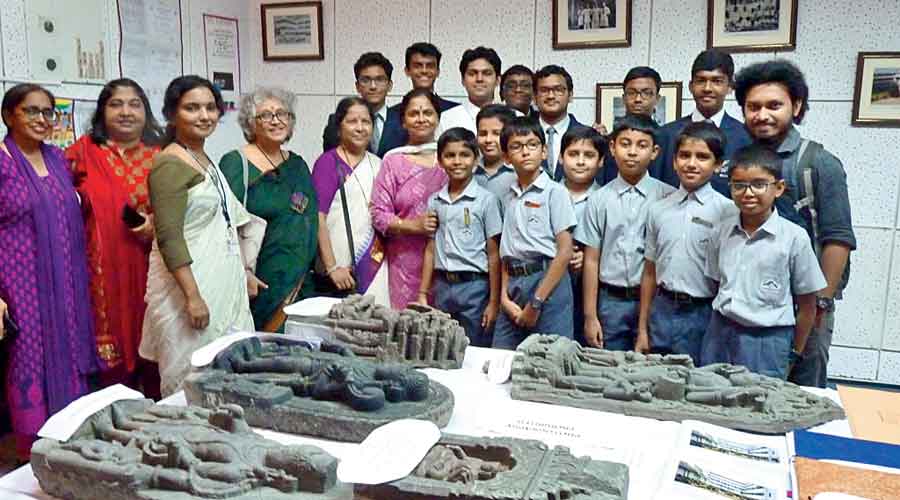
Twenty-five schools took part in a venture to find out the history of their schools as part of a hands-on project called Magic of My School. It was a pedagogical experiment to explore local history. Students explored the history of their own school by delving into old documents, records and journals, and by examining old artefacts and memories of those, who had been associated with their school for years. The year-long programme was initiated by Bichitra Pathshala, an organisation that has been promoting learning with moving images for a decade. It brings cinema into the classroom to make learning more joyful by organising film festivals and film-making workshops.
The culmination of the project was celebrated on a virtual platform recently where those associated with the project or organisation shared their opinion about the importance of such a programme. The day also saw launching of the book, Schools of Kolkata: Weaving Magic in Education, in two volumes. The Volume I, titled The Magic of Kolkata Schools, gives an introduction of the 25 schools that took part in the project and the Volume II, titled From Tole to Tablet, focuses on the factors that formed the education scenario of the city. Bichitra Pathshala secretary Subha Das Mollick edited the book. “It was interesting to watch students taking interests in finding the history of their schools. As part of the project, we went to different schools, conducted workshops where we taught them how to take interviews, do research and the like. It was a gratifying experience for us to interact with students and know their idea of history,” said Mollick.
A website named The Magic of My School was also launched on the occasion which bears testimony to the efforts taken by both students and teachers of the participating schools. “There are many takeaways from this project for all of us. One thing that I have learnt from this initiative is the more one knows, the more there is yet to know,” said Bichitra Pathshala president S.V. Raman.
British Council
A reading challenge organised by the British Council spiced up the homebound lives of young bookworms considerably. Since August, kids of Bengal and Northeast took part in a challenge that required them to finish reading one e-book or listening to an audio version every week for three successive weeks as part of the Reading for Life programme. The challenge aims to motivate children between seven and 12 years to read more and grow as an engaged reader. The British Council had curated a special age-wise reading list for the purpose. The collection was available to the registered participants through the institution’s official website or via an app. The children were also involved in workshops, book reviews and discussions as part of the programme, to sharpen their communication and creative skills.
Birla High School junior section, Moira Street
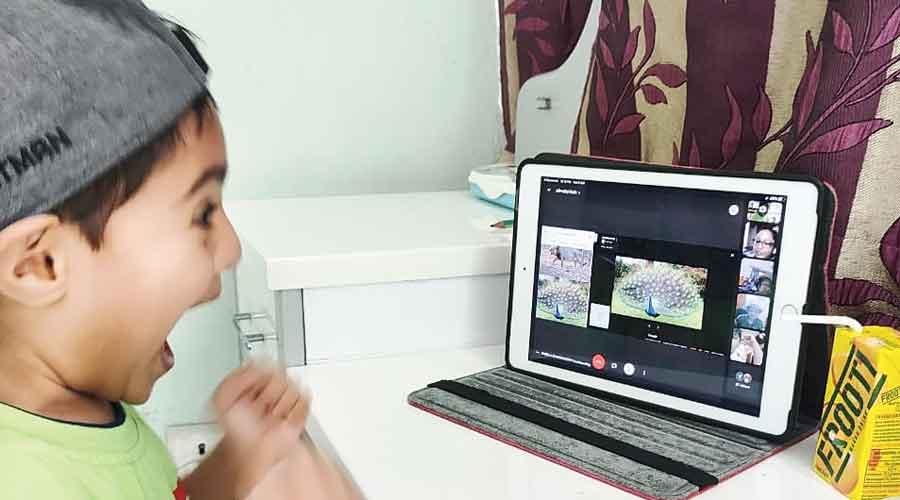
The junior section of Birla High School, Moira Street, organised their annual field trip in a different manner this year. Each class had virtual educational field trips to different places around the globe.
The nursery students went on a trip to the San Diego Zoo and Georgia Aquarium located in the US. They got to see an array of animals, birds, and fish and know about their habitat, food habits, and the importance of protecting all animals. A virtual jungle safari was in store for the kindergarten students as they visited the Sunderbans, Ranthambore, Kaziranga and the Gir forest. Students of Class I visited the Alipore Zoological Garden and the Singapore Zoo and students of Class II visited the chocolate museum in Brussels through Google Earth. For the students of classes IV and V, it was virtual trips to Delhi and Rome. “Field trips are an important part of our curriculum. It is an extension of learning and nothing beats the hands-on learning that kids experience when they visit a museum or a zoo. In the present situation, we are trying our best to make use of these virtual field trips for our kids. We use augmented reality and Google Earth for the same,” said Farida Singh, the headmistress.

